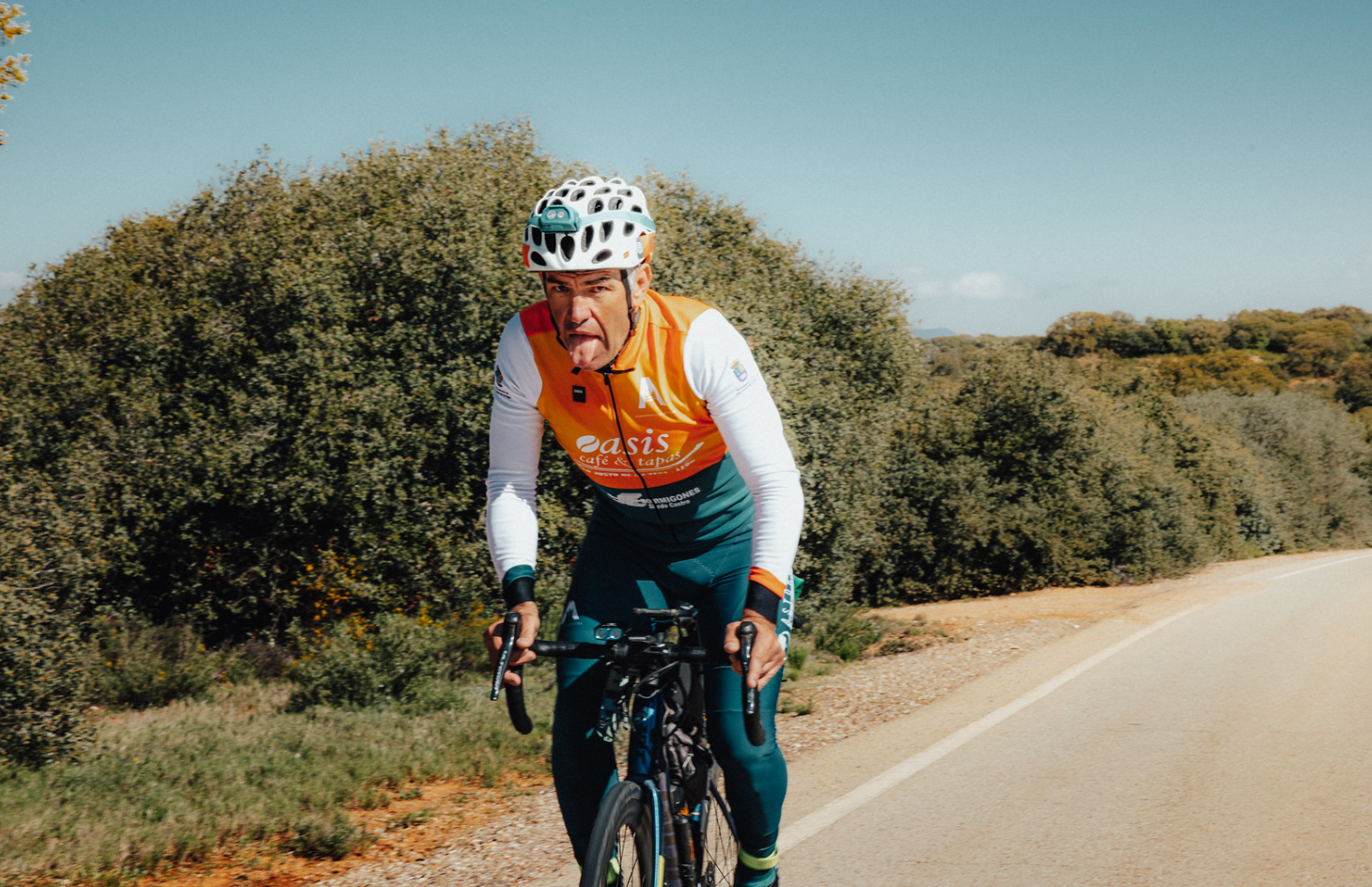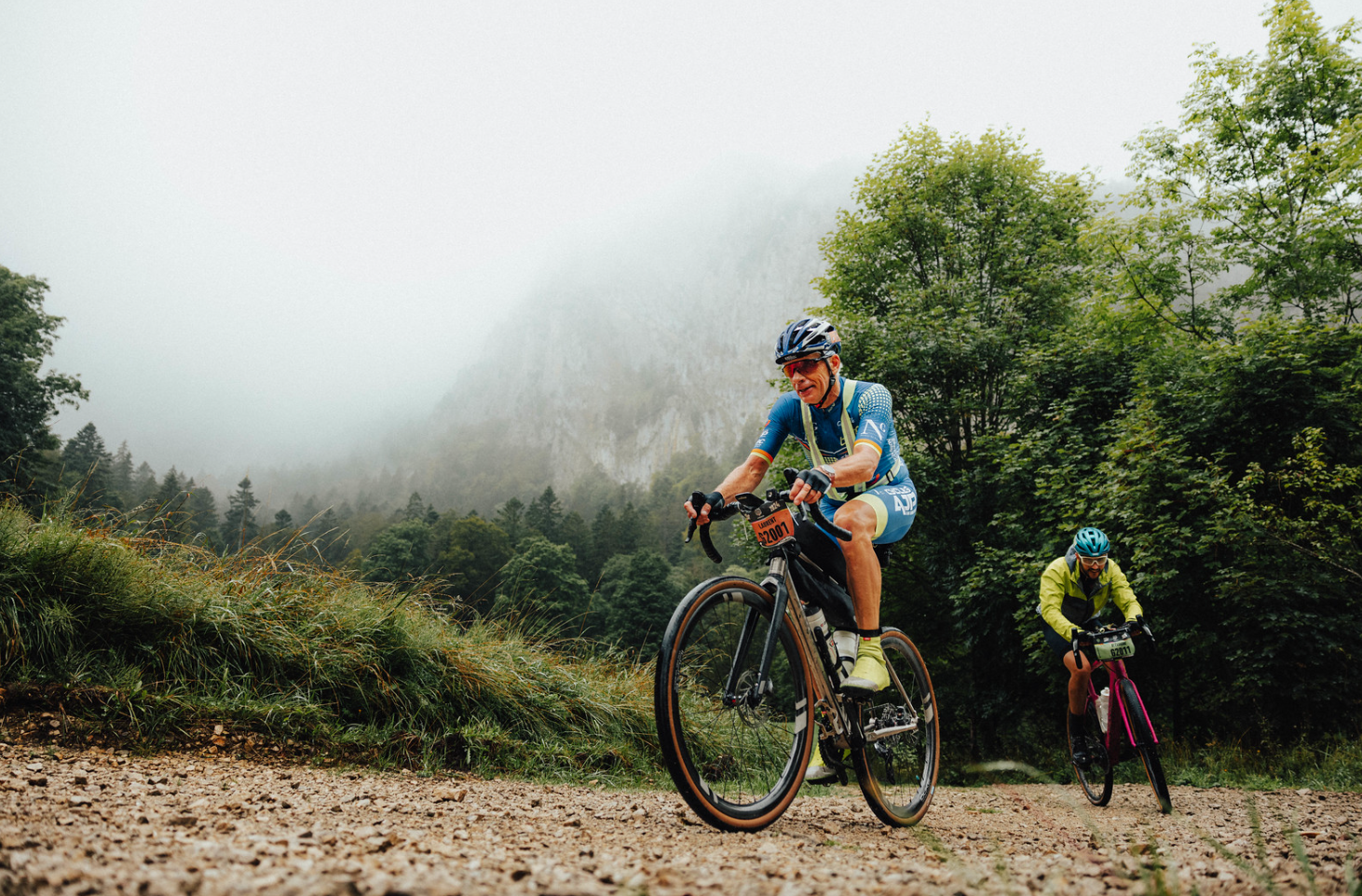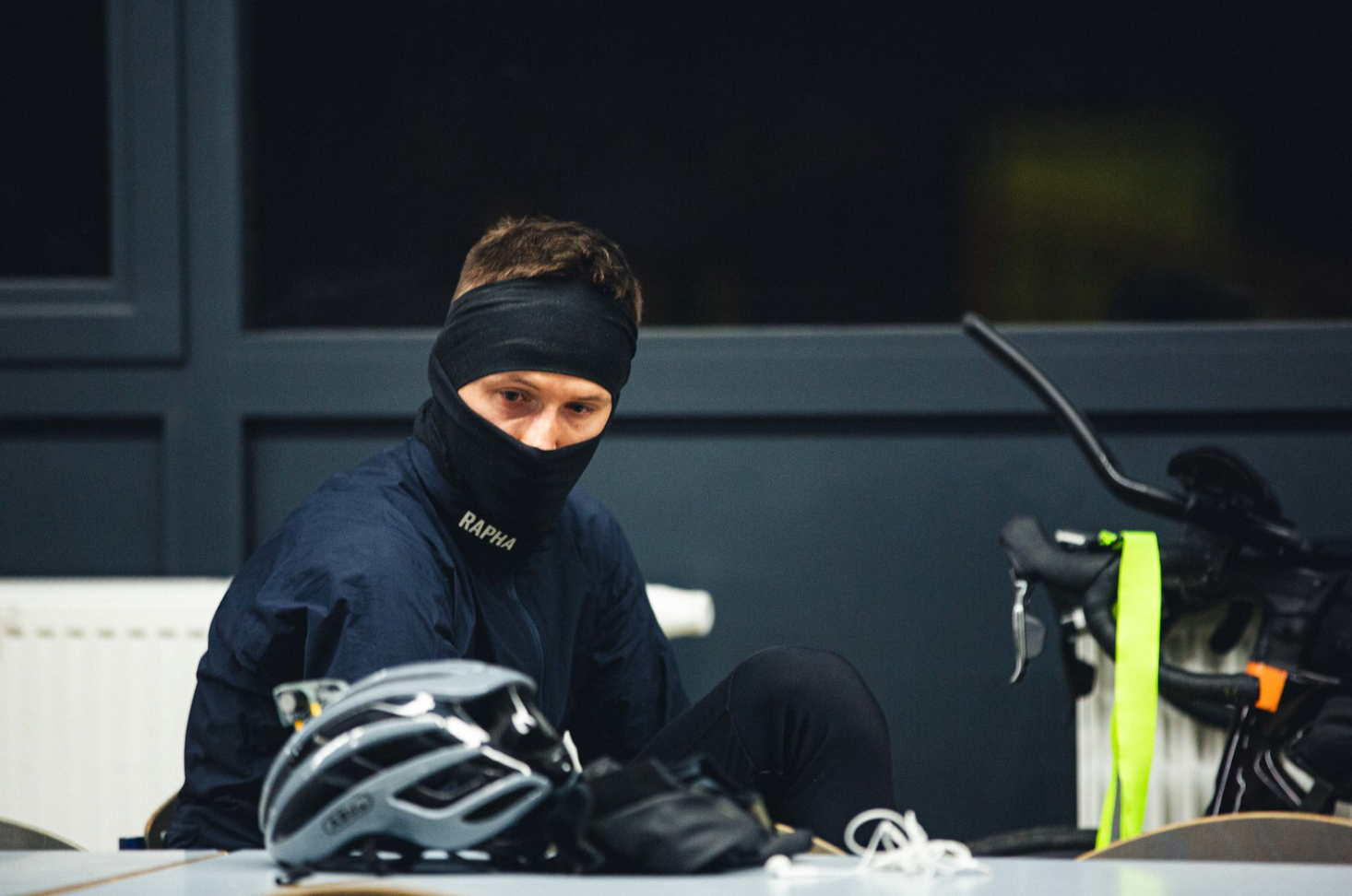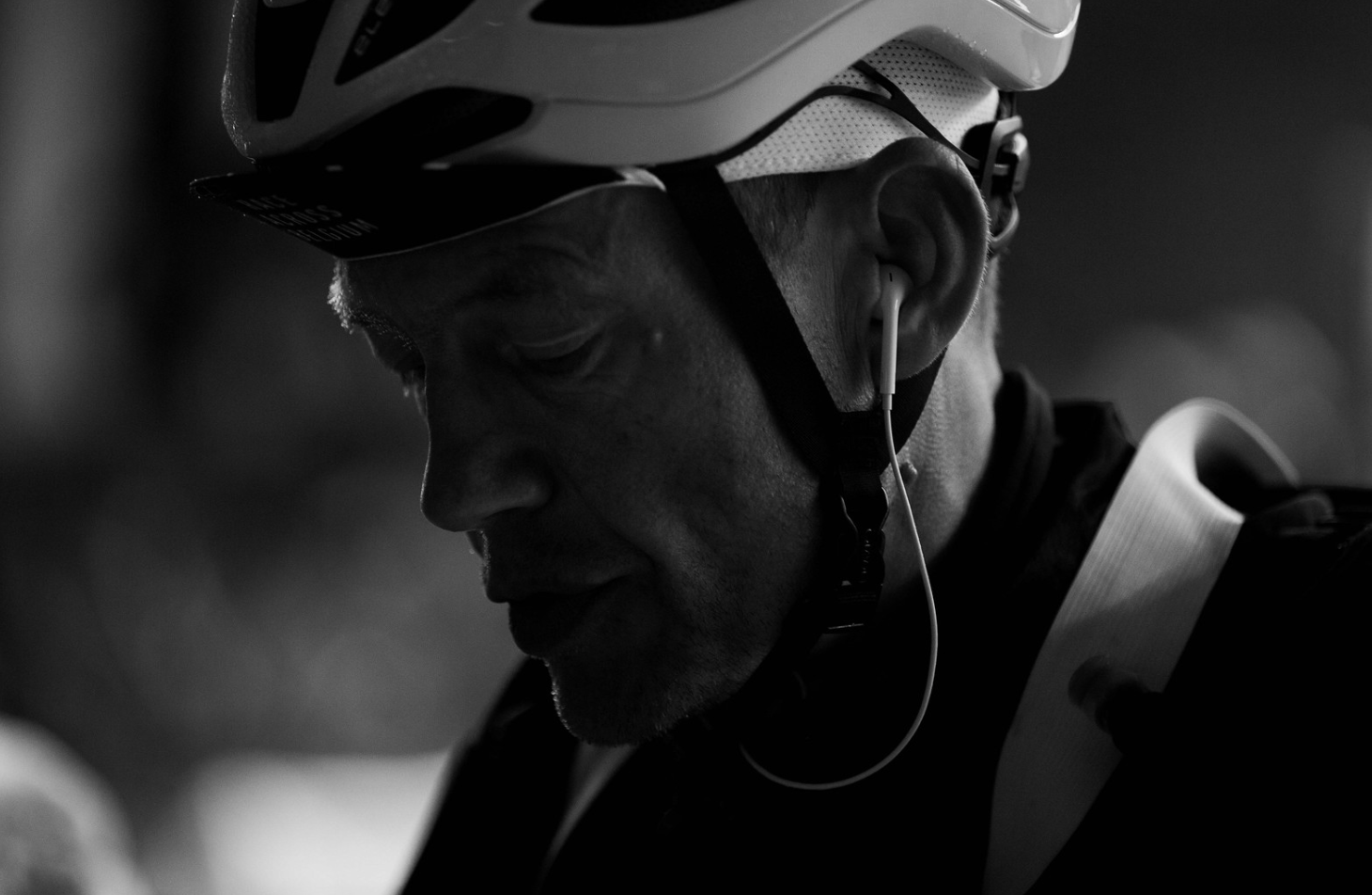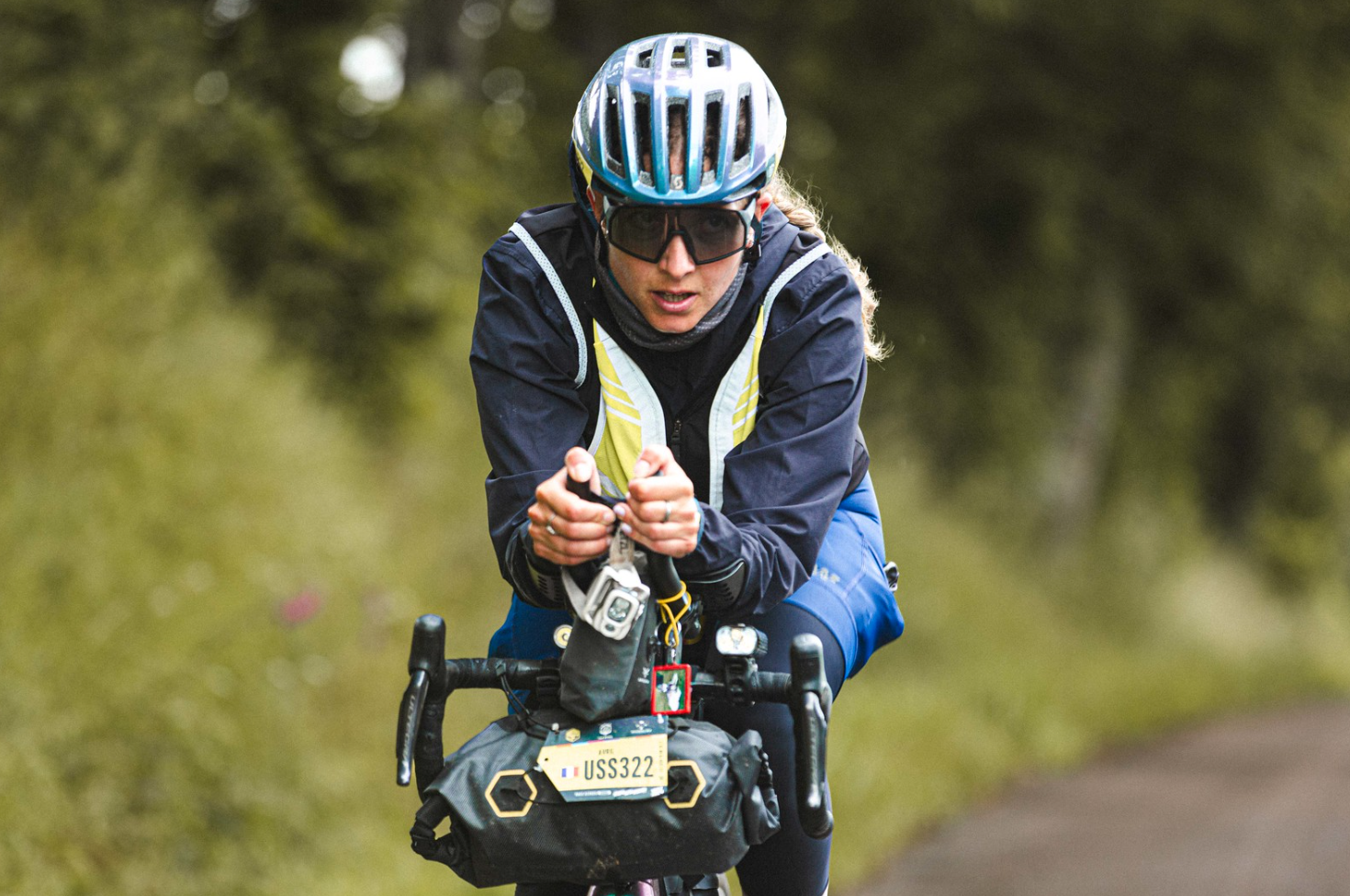Ultra-cycling to push personal limits
A Race Across Spain participant climbs an ascent with determination and humor, symbolizing the unique spirit of ultracycling. Robin Issartel (@robinissartel)
Ultracycling isn't just a sporting discipline; it's a test of strength, endurance and perseverance.
Much more than a competition against others, it's a personal challenge where each cyclist confronts his or her own limits, both physical and mental, in a journey of self-discovery.
Race Across France cyclists on a misty mountain ascent, a setting that illustrates both the sporting and introspective dimensions of ultracycling. Robin Issartel (@robinissartel)
1. The mind-body challenge
Ultracycling pushes everyone to their limits. Long distances, demanding terrain and often changeable weather put the body to the test: fatigue, aches and pains, lack of sleep.
But it's often the mind that falters first. Hours of solitude, doubts and the unexpected force you to draw on your inner resources. Every outing becomes a calm duel with yourself, where you learn to listen, adjust... and keep going.
2. Discover yourself on the move
Riding for a long time is a form of meditation in motion. You return to the present moment: a pedal stroke, a breath, a landscape. This tête-à-tête with oneself reveals fears and strengths, clarifies limits and shows how to overcome them. By reconnecting with sensations, we develop a self-awareness that goes far beyond the realm of sport.
3. Resilience & tenacity
A Race Across France participant takes a moment to fuel in a Basecamp, a symbol of the resilience and mental strength essential in ultracycling. Jennifer Nguyen (@jennifernguyen)
Nothing can be taken for granted: capricious weather, bumpy roads, fatigue that sets in... You learn to deal with discomfort and accept the unexpected.
Tenacity becomes the fuel: moving forward when the plan goes off the rails, adjusting the strategy, starting up again after a slump. In this logic, meeting one's limit is not a failure: it's a starting point. Through trial, error and adjustment, we forge a resilience that comes in handy everywhere - on the bike, at work, in life.
4. The mental tools that make the difference
The concentration of a participant, a testimony to the essential place of the mind in ultracycling. Robin issartel (@robinissartel )
Ultracyclists also equip their heads:
Controlled breathing to manage stress and restore calm.
Visualization of key passages (uphill, night, finish) to prepare the brain.
Simple mantras to keep you on course ("one coast at a time", "move forward, breathe").
Focus on what depends on you (pace, hydration, trajectory), not the rest.
These practices help you regain control of your emotions, keep your attention focused and transform difficulty into progress.
5. Transformation & small victories
Every kilometer is a victory. Finishing a tough outing, climbing a mountain pass, training on a tired day - these are all worth celebrating. These moments tell the story of progress and build lasting confidence.
With each experience, ultracycling becomes a lever for life: managing pressure better, making decisions in a hurry, staying motivated over the long term. More than a sport, it's a path of transformation.
Conclusion
In the end, ultracycling is not just about watts and kilometers. It's a laboratory of the self, where you learn to tame discomfort, to listen to your body without betraying yourself, and to mobilize your mind when your legs falter. Outing after outing, you discover that progress depends not only on the day's form, but on your ability to stay present, adjust your plan and set off again - sometimes more slowly, always more lucidly. Mental tools (breathing, visualization, micro-objectives) cease to be "tricks" and become reflexes that structure the effort and calm the inner noise.
This path forges lasting confidence: we now know how to get through a slump, a cold night, an endless climb. And this confidence extends beyond the bike: it helps you to make decisions under pressure, to stay the course in long-term projects, to turn an obstacle into a milestone. Every little victory - a climb over a mountain pass, an outing completed despite fatigue, a fear tamed - tells the story of a discreet metamorphosis.
Ultracycling is an act of freedom: choosing to go further, with humility and curiosity. You don't "beat" distance; you learn to live with it. And, along the way, you meet yourself. If you had to remember just one thing: move forward one small goal at a time, celebrate your progress, and let the road teach you the rest.
Avril Laheurte, participant in the Race Across France, in aerodynamic position on her bike, focused on the effort and equipped for long-distance ultracycling. © Keryan Sorton (@krynds)

